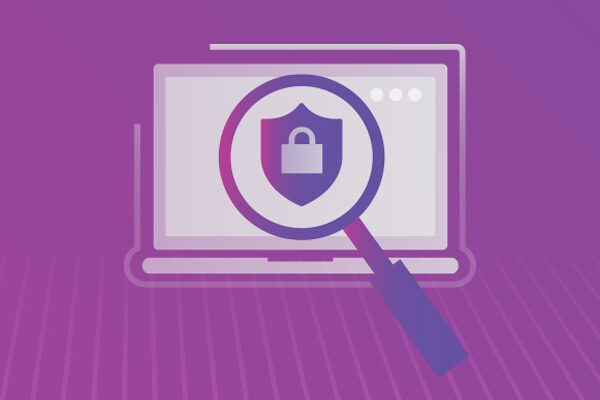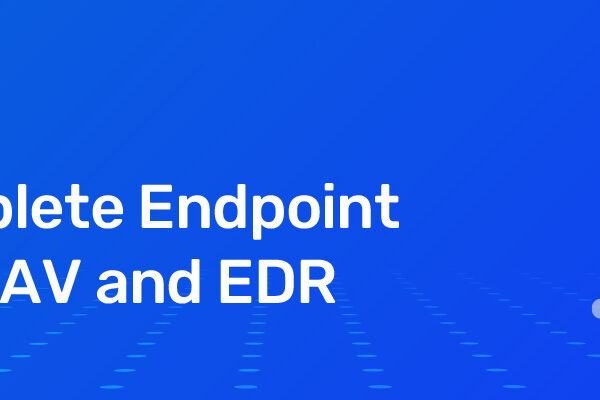Why Taking a Next-Generation Approach to AV Is Essential
Antivirus (AV) solutions play a crucial role in safeguarding any organization’s networks and data. Traditional, signature-based antivirus solutions have been the norm for decades, but the rise of next-generation antivirus solutions signals a paradigm shift in the approach to combating advanced threats. This blog post explores the key differences between signature-based and next-generation antivirus solutions, shedding light on the strengths and limitations of each.
Signature-based antivirus solutions were the standard
Signature-based antivirus solutions stood as the stalwart guardians of digital systems and networks. This method served as the cornerstone of cybersecurity for decades, offering a reliable means of protection against known viruses and malware that plagued digital landscapes. However, as cyberthreats evolved, the limitations of signature-based antivirus became increasingly apparent.
What is a signature-based AV solution?
Signature-based AV solutions rely on a vast database of known malware signatures to identify and eliminate threats. A signature is a unique identifier or characteristic extracted from a known malicious file. When a file matched a known signature associated with malicious software, the antivirus software would promptly intervene, providing a robust defense against established threats.
How it works
Database creation: Security experts continually analyze and catalog new malware, creating a database of signatures.
File scanning: When a file is accessed or downloaded, the antivirus software scans it for matches against the established signatures.
Alert and action: If a match is found, the antivirus program triggers an alert and takes appropriate action, such as quarantining or deleting the infected file.
Pros of signature-based antivirus:
Effectiveness against known threats: Signature-based solutions excel at identifying and removing known viruses and malware.
Resource efficiency: These solutions are typically lightweight and don’t consume excessive system resources.
Cons and limitations:
Inability to detect unknown threats: Signature-based solutions struggle when faced with new, zero-day threats that lack a predefined signature.
Vulnerability to polymorphic malware: Malware that can change its code to evade detection poses a significant challenge to signature-based systems.
Next-generation AV solutions are built for today’s fast-evolving threats
In today’s fast-evolving threat landscape, opting for a next-generation antivirus solution is not just a prudent choice but a necessity. Traditional, signature-based antivirus, while effective against known threats, struggles to keep pace with the rapid evolution of sophisticated cyberthreats. Next-generation antivirus solutions, on the other hand, bring a paradigm shift by employing advanced technologies like machine learning, behavioral analysis and heuristic approaches.
With continuous learning capabilities, next-generation AV solutions evolve alongside the dynamic threat landscape, ensuring that users and organizations stay ahead of emerging cyber-risks. The adaptive nature of today’s modern AV solutions allows them to detect and thwart previously unknown threats, providing a proactive defense against zero-day attacks and polymorphic malware. In an era where cyberthreats are increasingly sophisticated and diverse, the agility and intelligence offered by next-generation antivirus solutions make them a smarter choice.
5 key differences between signature-based and next-generation AV
There are many reasons why newer next-generation antivirus solutions are considered superior to their old-fashioned counterparts. Here are a few of the major differences between signature-based AV and next-generation AV:
Adaptability to unknown threats:
Signature-based: Relies on predefined signatures, struggles with new and unknown threats and lacks established identifiers.
Next-gen: Leverages advanced techniques, like machine learning and AI, to detect and thwart previously unknown threats based on their behavior rather than static signatures.
Protection against zero-day attacks:
Signature-based: Vulnerable to attacks exploiting vulnerabilities before they are known and patched.
Next-gen: Employs heuristics, sandboxing and other advanced techniques to detect and prevent zero-day attacks by identifying suspicious behavior and patterns.
False positives
Signature-based: May generate false positives when legitimate files share similarities with known malicious signatures.
Next-gen: The combination of AI and machine learning helps reduce false positives since these solutions focus on the context if the files act maliciously rather than relying solely on static signatures.
Adaptive learning and continuous improvement
Signature-based: Static database updates may lead to delays in recognizing and mitigating new threats.
Next-gen: Utilizes machine learning algorithms that continuously adapt and learn from new data, ensuring a dynamic defense strategy that evolves with the threat landscape.
Multilayered defense
Signature-based: Often operates as a single layer of defense, leaving potential gaps in security.
Next-gen: Embraces a multilayered approach, combining signature-based detection with AI, machine learning and other advanced techniques for comprehensive protection.
The transition from traditional, signature-based antivirus solutions to next-generation approaches represents a significant leap forward in cybersecurity. The adaptive nature, proactive defense mechanisms and the ability to handle unknown threats make next-gen solutions the preferred choice in today’s dynamic threat landscape. As cyberthreats continue to evolve, investing in advanced, next-generation antivirus solutions becomes essential for individuals and organizations alike, ensuring robust protection against the ever-changing face of malicious activity in the digital realm.
Datto AV is an innovative and affordable next-generation antivirus solution
It pays to have the best antivirus solution on the market at your fingertips. Datto AV, designed with the future of cybersecurity in mind, offers an innovative and cost-effective antivirus solution that gives defenders an edge in a challenging cyber landscape.
A true next-generation antivirus solution leverages AI
Leverage the strength of AI, machine learning and the latest threat intelligence to go beyond signature-based security, enabling IT teams to identify threats like zero-day and polymorphic malware.
You don’t have to compromise between security and performance
Experience top-notch security without compromising system performance or end-user experience. Datto AV boasts a small memory footprint, using less than 1GB of disk space.
Top-tier protection and detection in real-time is a game changer
Datto AV scans files in real-time using its advanced unpacking capabilities to skillfully handle hundreds of runtime packers and obfuscators, plus a wide range of archive formats for thorough malware detection.
Avoid headaches with seamless Integration with AMSI
Integration with AMSI helps protect you from dynamic, script-based malware, including Microsoft Office VBA macros, PowerShell, JavaScript and VBScript.
Learn more about Datto AV when you schedule a demo.




